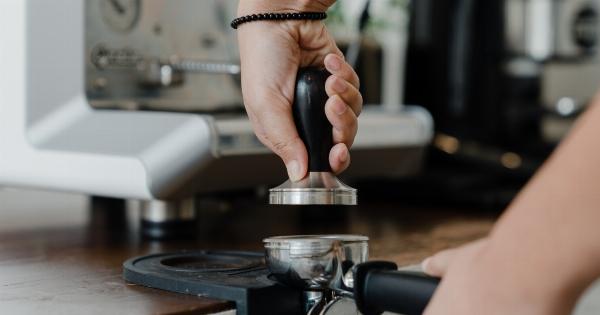One of the most common questions that expectant mothers have is whether or not they can continue to enjoy their daily cup of coffee during pregnancy.
While coffee is a beloved pick-me-up for many, it is important to understand its potential effects on both the mother and the developing baby. In this article, we will explore the research surrounding coffee consumption during pregnancy and whether it is safe or potentially harmful.
The effects of caffeine during pregnancy
Caffeine is a natural stimulant found in coffee, tea, cocoa, and certain medications or energy drinks. It can cross the placenta and reach the developing baby, potentially affecting its development.
The effects of caffeine on pregnancy are still a topic of debate among researchers, but several studies have highlighted potential risks.
Increased risk of miscarriage
Research suggests that high levels of caffeine intake during pregnancy may increase the risk of miscarriage.
A study published in the American Journal of Obstetrics and Gynecology found that women who consumed more than 200 milligrams of caffeine daily had twice the risk of miscarriage compared to those who avoided caffeine altogether.
Low birth weight
Another concern is the potential impact of caffeine on the baby’s growth. Some studies have linked high caffeine intake during pregnancy to an increased risk of low birth weight.
Low birth weight is associated with a higher risk of certain health problems in infancy and later in life.
Preterm birth
Several studies have suggested a possible association between caffeine consumption and an increased risk of preterm birth.
Preterm birth, defined as giving birth before 37 weeks of gestation, can lead to various complications and health issues for the baby.
Effects on sleep patterns
Caffeine is a known stimulant that can interfere with sleep. Pregnant women already experience changes in their sleep patterns due to hormonal fluctuations and physical discomfort.
Consuming caffeine may further disrupt sleep, which is crucial for the well-being of both the mother and the developing baby.
Maternal hypertension
Some studies have suggested a link between high caffeine intake and an increased risk of developing gestational hypertension, also known as pregnancy-induced hypertension.
This condition is characterized by high blood pressure during pregnancy and can have negative implications for both the mother and the baby.
Limiting caffeine intake during pregnancy
Given the potential risks associated with caffeine consumption during pregnancy, many healthcare providers recommend limiting intake.
The American College of Obstetricians and Gynecologists suggests that pregnant women consume no more than 200 milligrams of caffeine per day, which is roughly equivalent to one 12-ounce cup of coffee.
Other sources of caffeine to watch out for
It is important to note that caffeine is not only found in coffee but in other products as well. Tea, chocolate, certain sodas, and even some medications contain varying amounts of caffeine.
It is essential to be aware of these alternative sources and factor them into your overall caffeine intake.
Alternative drinks and strategies for energy
If you are concerned about reducing or eliminating caffeine during pregnancy, there are several alternatives to consider.
Herbal teas that are free of caffeine, such as chamomile or peppermint tea, can be soothing and provide a comforting warmth similar to coffee. Additionally, staying hydrated, eating regular nutritious meals, and getting sufficient rest can help combat fatigue and boost energy levels without the need for caffeine.
Consulting your healthcare provider
Every pregnancy is unique, and individual circumstances may vary. It is crucial to consult with your healthcare provider regarding any questions or concerns you have about caffeine consumption during pregnancy.
They can offer personalized guidance based on your specific situation.
Conclusion
While it may be difficult for coffee lovers to give up their daily cup of Joe during pregnancy, it is essential to consider the potential risks associated with caffeine consumption.
From an increased risk of miscarriage and low birth weight to potential effects on sleep patterns and blood pressure, the impact of caffeine on both the mother and the developing baby cannot be ignored. By limiting caffeine intake and exploring alternative drinks and strategies for energy, expectant mothers can prioritize the health and well-being of themselves and their babies.




























